Table of Contents
1. Verification Overview
What is verification?
Verification ensures that you accurately completed all parts of the Higg FEM – giving your self-assessment the credibility and accuracy required to share it publicly.
Verification of the FEM self-assessment is conducted by Cascale-approved verifier. The verifier is selected and hired to review a facility site. The verifier is the only person responsible for validating the accuracy of the assessment.
Core Verification – To support industry transition to Higg FEM 4.0, Cascale has introduced the core verification approach which consists of a narrowed set of questions to be verified during CY2024. Core question set is aimed at verifying Higg FEM questions related to foundational environmental practices and selected essential quantitative metrics data. Higg FEM Core Verification shall apply to Higg FEM Verifications occurring in the FEM2023 cadence (calendar year 2024).
What is the difference between the vFEM and a traditional audit?
The Higg FEM is not a pass/fail audit. It is simply a means to verify you understood and answered the FEM self-assessment correctly. Verified data and scores provide trusted information on facility environmental performance, reducing the need for multiple proprietary audits.
For full description and information on the verification process, please visit our FEM verification page here.
2. Prepare for Verification
To prepare for FEM verification, follow the steps below:
- Facilities must first confirm the timing and terms of the verification directly with the verifier body. Verification confirmation happens outside of the worldly.io platform (it should be discussed directly with the verifier). View the list of Higg FEM Verifiers here.
- The facility must first fully complete and post their FEM self-assessment (reach 100% completion rate) before being able to start verification.
Once both of the above steps are completed, the verification process can begin.
3. Verification Process
Select a Verifier Body
To begin verification, first select the verifier body on the platform. This can be done from the FEM dashboard by clicking the ‘Select Verifier Body’ button.
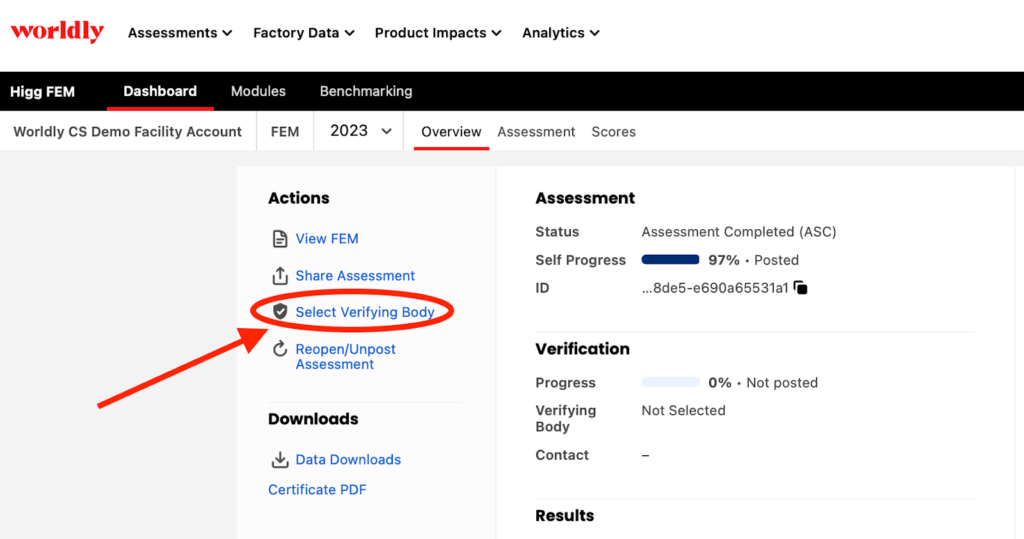
Make sure to select the Verifier Body that you have already contacted and arranged to complete verification with.
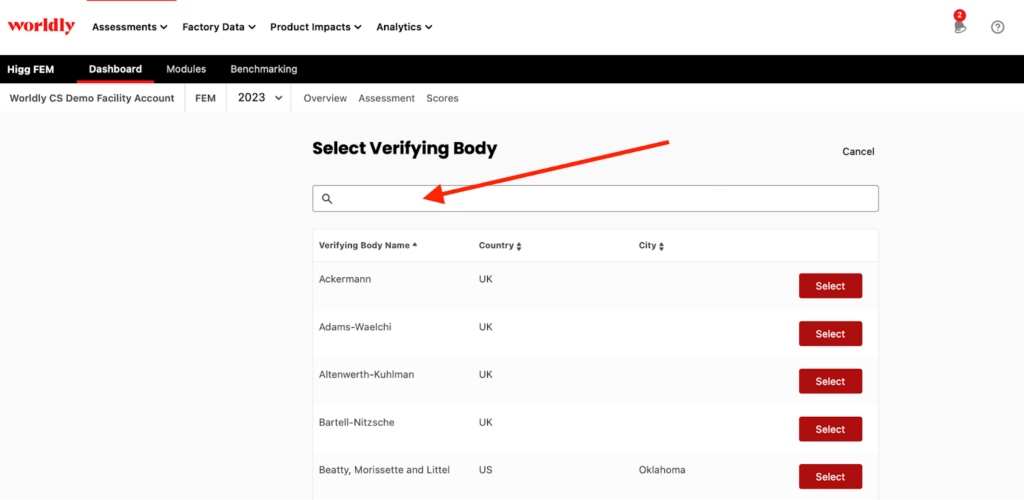
Use the search function to find the VB that you have been in contact with, and click select.
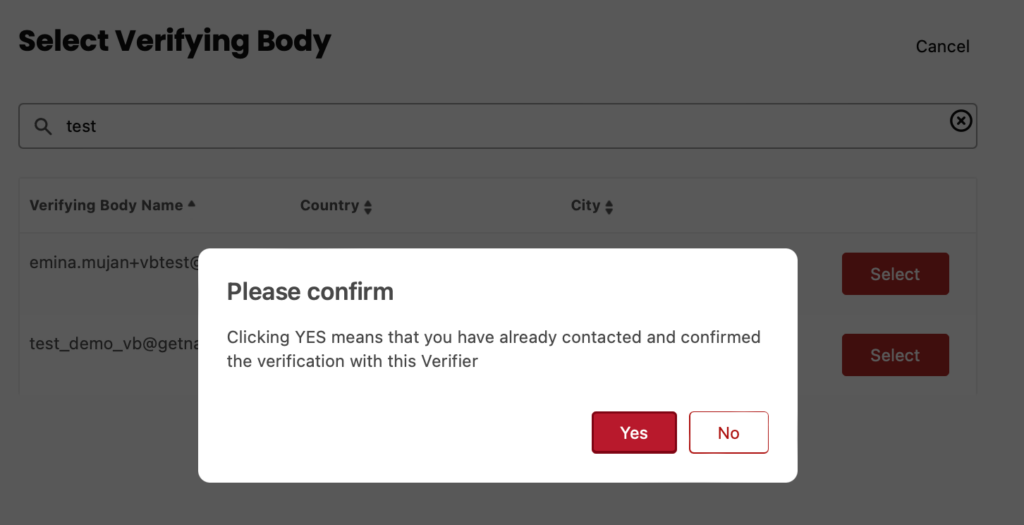
The verifier must then accept the verification request and assign the verifiers. Once that has been completed, the status will change to ‘Accepted’.
Change the Verifier Body
You can change the selected verifying body if needed, but only before the verifier starts the verification. Once the verification is in progress and the module status changes to Verification in Progress (VRP), the verifier cannot be changed.
To change the verifying body, select ‘Change Verifying Body’ in the right navigation bar and pick a new one from the available options.
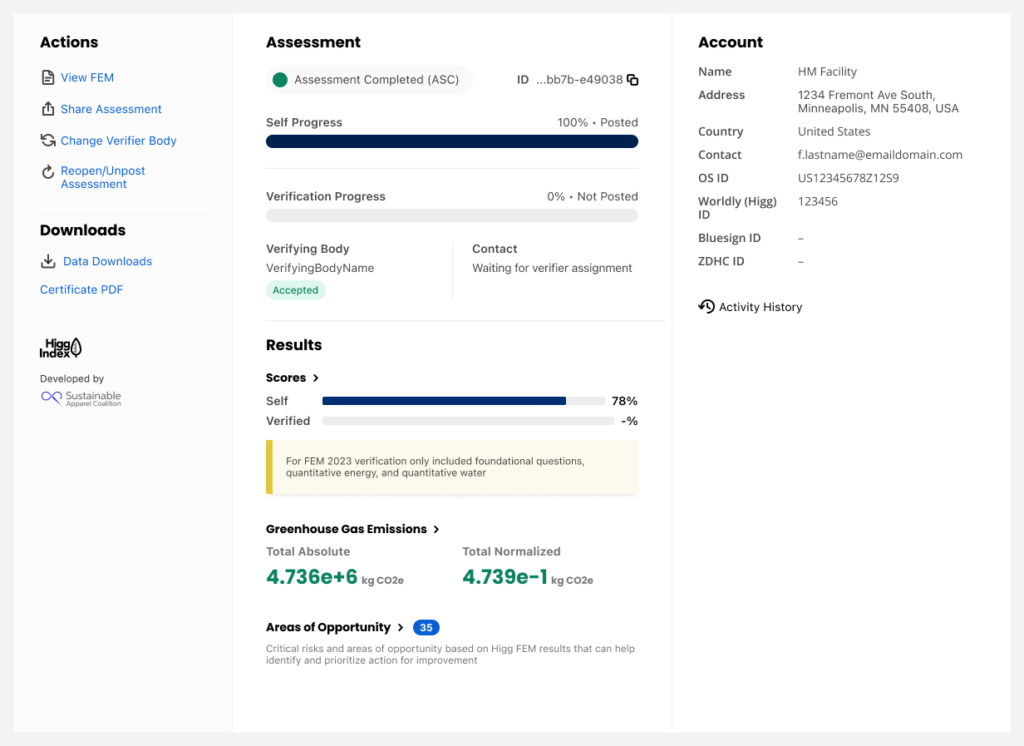
Verifier Completes Verification
The assigned verifier will then complete the verification process, individually verifying the responses to questions in the assessment. Progress towards completion can be monitored using the progress bar on the FEM dashboard.
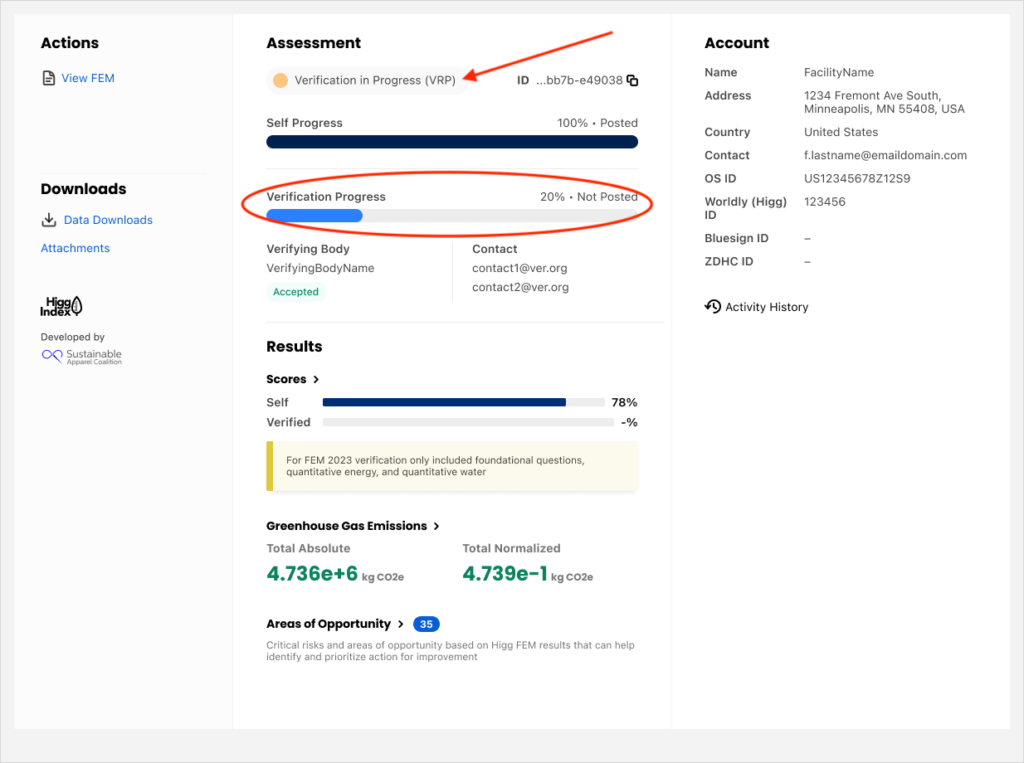
Review and Finalize Verification
Once the verification is complete (VRC assessment status), you will receive an email notification. To complete the process and submit the vFEM, you must review the verification notifications submitted by the Verifier Body.
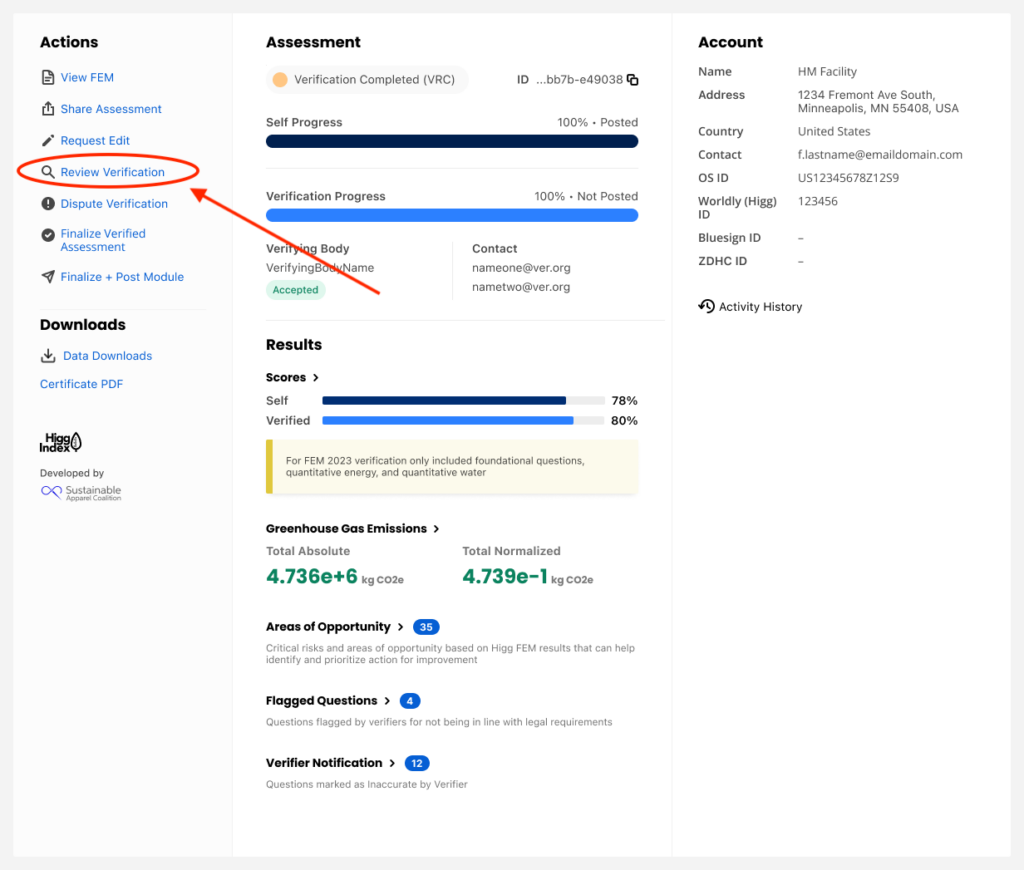
Click the “Review Verification” button under Actions tab to review the final verified assessment before finalizing the verified assessment.
Review the verified FEM assessment, core-verified questions that have been verified can be marked as Accurate or Inaccurate. If marked as Inaccurate, the verifier will provide the correct answer and leave a comment with an explanation. See here an example of a question marked ‘Accurate’.
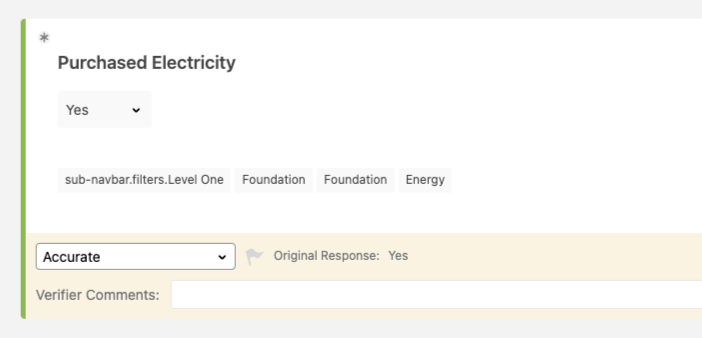
You can click “Additional Filter” on the top bar to check the verification result and filter on Accurate or Inaccurate questions. Note that it is expected for the facility to review all the verified questions with the verifier prior to the verifier submitting the verification to ensure alignment on any responses that were changed by the verifier.
You then have three options:
- Finalize Verified Assessment (VRF): This is a one-time action. Finalizing the verified assessment confirms that you have reviewed the report, discussed issues with the Verifier/Verifier Body, and resolved any issues raised.
- Verification Request Edits (VRE): If there are revisions required to the vFEM, the Request Edits (VRE) function should be used to allow the Verifier/VB to address any required revisions. After initiating the VRE process, facilities should contact their Verifier/VB to discuss the revisions needed. Once a Verifier has completed the agreed upon revisions, the vFEM status is returned to VRC by the Verifier. From VRC status, the module can be changed back to VRE (for additional edits) or to VRF/VRD.
- Dispute Verification (VRD): The verification can be disputed if the facility observes a breach of verification protocol or unprofessional/unethical behavior by the Verifier. Please read the Dispute Protocol on howtohigg.org to fully understand the next steps.
Question level disagreements cannot be substantiated as a dispute. These should be directly discussed with the Verifier. Note that if a dispute is unsubstantiated the verified module status will be finalized.
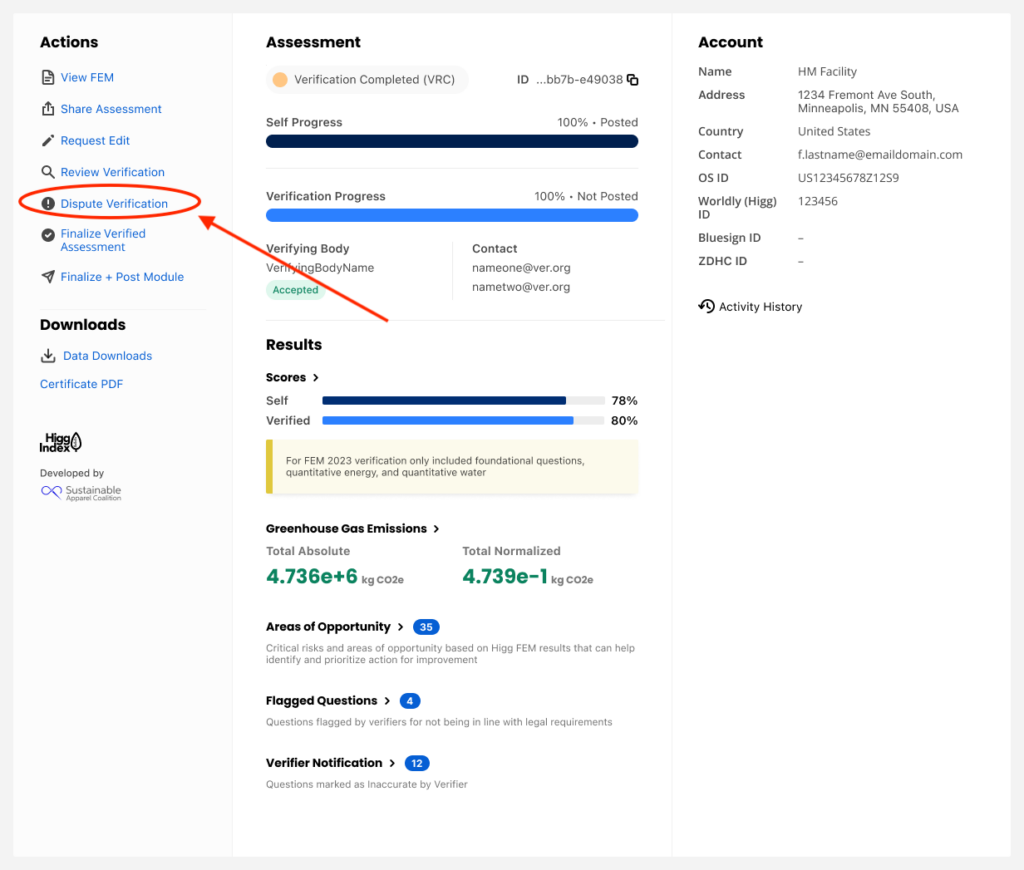
Click ‘Dispute Verification’ in the right navigation pane.
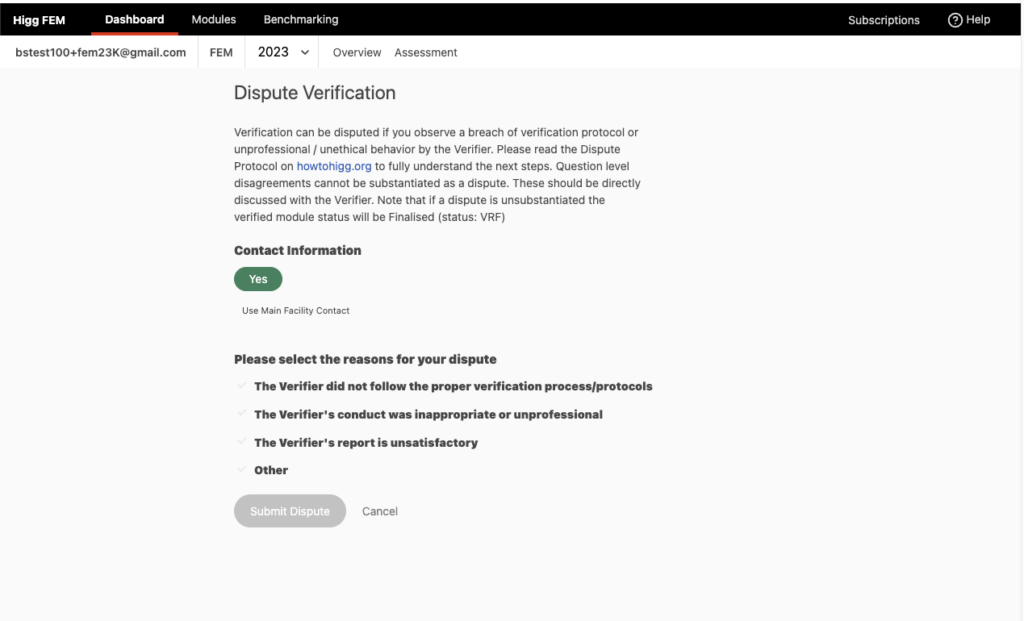
Please select the reasons for your dispute.
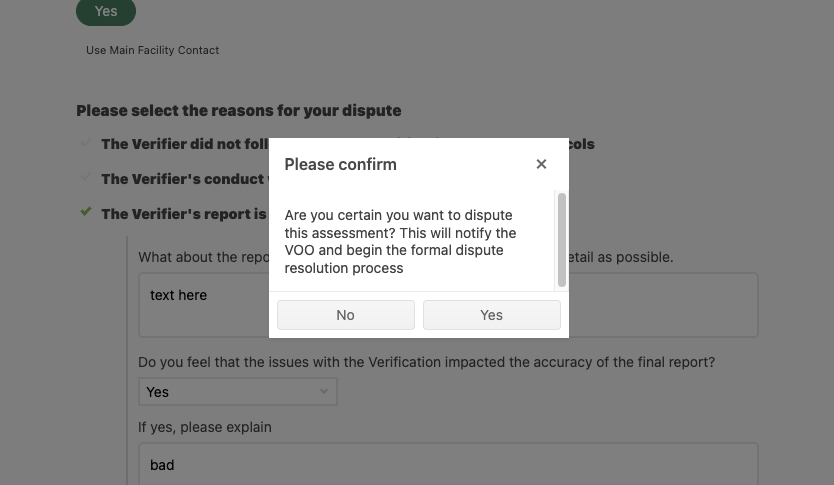
4. vFEM Results Reports
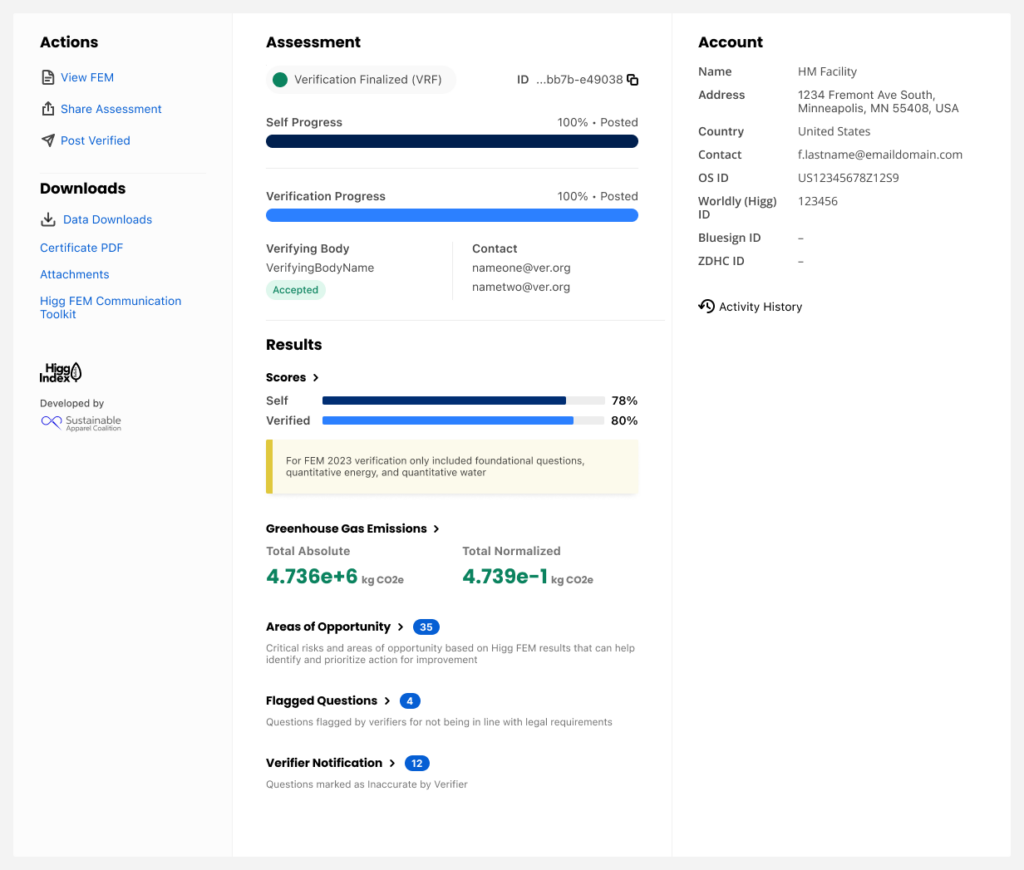
There are two additional results reports that are available only for verified FEM assessment.
Flagged Questions
The Flagged Questions report is only available for the vFEM. This report highlights responses that aren’t aligned with legal requirements. This is where you should focus your attention to improve immediately.
Verifier Notification
This report shows questions where the verifier feels the self-assessed answer is inaccurate, or there is no response. This report shows the refID, question, self-assessment response, as well as the verification selection and verifiers corrected response and data.
For the accuracy rate, it is based on the questions verified as “Accurate”.
For the completion rate, it is based on the verification completion by the verifier.
